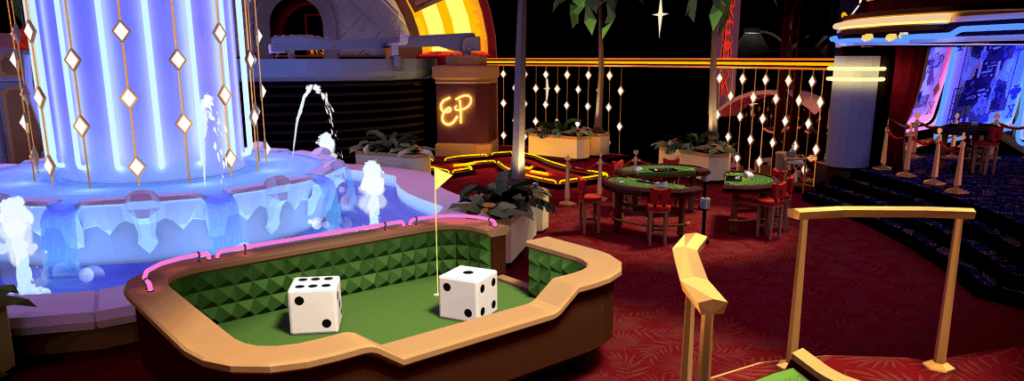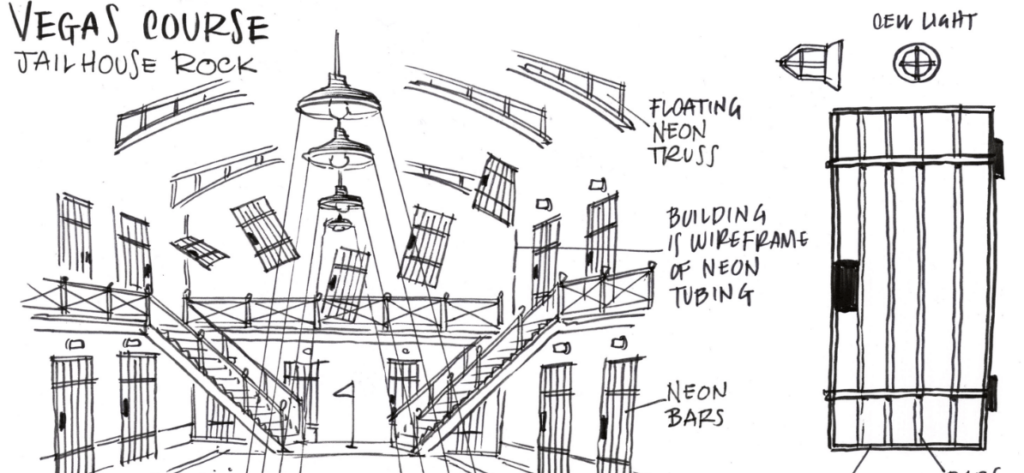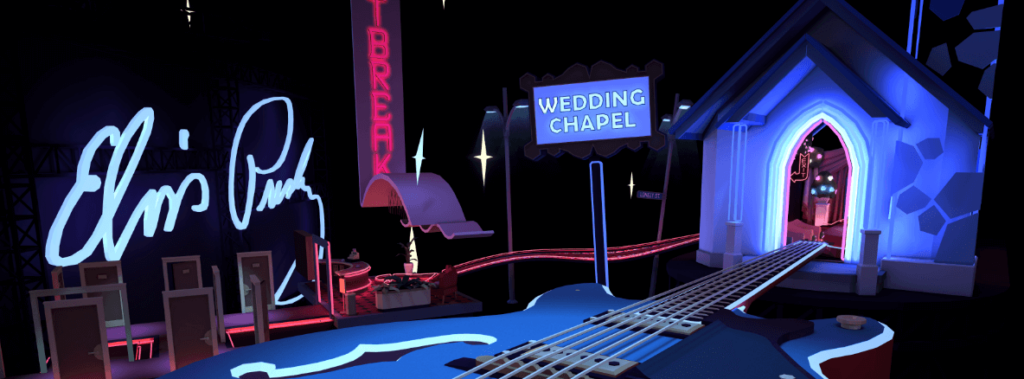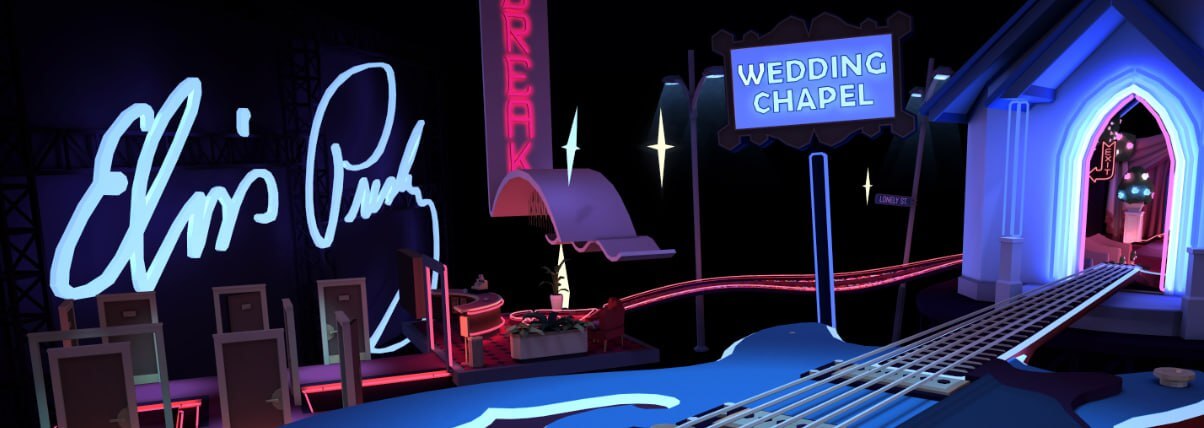Walkabout Mini Golf’s new Viva Las Elvis course merges VR escapism with the chaotic charm of Las Vegas, launching amid a cultural resurgence for digital sports. While traditional golf games like Everybody’s Golf Hot Shots pivot to multiplatform releases (PS5, Switch, PC), Walkabout doubles down on immersive VR innovation. Its 2 million-strong player base isn’t just putting balls—they’re exploring surreal worlds, from pirate coves to alien landscapes. Now, Vegas becomes the latest playground.
Virtual Greens Meet Vegas Glamour
Timing is key. Bandai Namco’s retro-inspired Hot Shots reboot leans on nostalgia, but Walkabout thrives on novelty. The Viva Las Elvis drop coincides with Lady Gaga’s Mayhem Ball tour—which includes a Vegas stop—and Atlanta Drive’s TGL Playoffs victory, blending virtual sports with real-world spectacle. Imagine sinking a hole-in-one past neon-lit Elvis impersonators while Gaga’s concert crowds roar nearby—it’s synergy only 2025’s hybrid entertainment landscape could create.

This course isn’t just minigolf. It’s a statement: VR can rival real-life events for sheer absurdity. With 70% of Walkabout players citing “exploration” as their primary draw, Vegas’ over-the-top architecture and hidden Easter eggs (think slot-machine obstacles or Blackjack-themed tunnels) promise fresh surprises. For fans weary of cookie-cutter sports sims, Viva Las Elvis offers a neon-drenched antidote.
Designing Neon Chaos in Virtual Reality
Walkabout’s Viva Las Elvis course redefines VR interactivity with physics-driven absurdity. While Bandai Namco’s Everybody’s Golf Hot Shots (a reboot of the PS Vita’s World Invitational) leans on chibi-style nostalgia, Walkabout engineers chaos. Imagine a hole where slot-machine levers alter the green’s incline mid-putt, or a Blackjack-themed tunnel that reshapes itself after every stroke—these aren’t gimmicks, but core mechanics. Developers used photogrammetry to replicate Vegas landmarks, then warped them: the Stratosphere tower becomes a spiraling ramp, while the Bellagio fountains erupt with holographic Elvises.
Player agency drives the experience. Unlike Hot Shots’ fixed courses, Walkabout layers reactive environments. Hit a neon sign with your ball? It triggers a 10-second disco light show, temporarily blinding opponents. Sneak into a backstage “Elvis Lounge” (found via hidden vents) to unlock a golden putter—a nod to Lady Gaga’s Mayhem Ball tour merch. With 45% of players replaying Walkabout courses to discover secrets, Vegas’ labyrinthine design caters to completionists. One tester spent 3 hours decoding a casino vault puzzle, only to find a mini-game where you caddy for a virtual Elvis.

VR’s tactile advantage shines here. While traditional golf sims struggle with swing mechanics (Bandai Namco’s Switch port of Hot Shots uses simplified motion controls), Walkabout’s haptic gloves simulate club resistance against roulette-wheel sand traps. The course’s “Glitter Gulch” hole—a 30-foot vertical putt up a rotating showgirl statue—requires precise wrist flicks, a technique borrowed from TGL’s arena golf strategies. Atlanta Drive’s playoff win, decided by hammer throws on synthetic greens, mirrors this blend of precision and spectacle.
Social VR integration amplifies the madness. Up to eight players can roam the course, with voice chat picking up ambient noise from Lady Gaga’s concurrent Vegas concert (via real-time audio licensing). It’s a gamble: 20% of beta testers found the cacophony overwhelming, but 73% praised the “live event” immersion. Compare this to Hot Shots’ local co-op—a safe play for couch multiplayer, but lacking Walkabout’s cross-platform VR/PC crossplay, which boosted its active users by 40% post-launch.
The course also subverts Vegas stereotypes. Yes, there’s a hole inside a replica Graceland chapel, but it’s surrounded by desert flora scanned from Red Rock Canyon—a nod to eco-conscious design. Even the Elvis motif avoids kitsch: motion-captured impersonators perform unreleased 1956 tracks, licensed from RCA’s archives. It’s a $2.1M production, dwarfing Hot Shots’ budget, yet Walkabout’s $15 DLC price stays accessible. As one designer quipped, “We’re not selling a game—we’re selling a $15 vacation.”
Beyond the Putt—Redefining Hybrid Entertainment
Walkabout’s Viva Las Elvis isn’t just a VR course—it’s a blueprint for hybrid entertainment. While Bandai Namco’s Everybody’s Golf Hot Shots revival (a PS Vita-era port with chibi aesthetics) caters to nostalgia, Walkabout leverages real-world spectacle. Atlanta Drive’s TGL Playoffs victory, decided by hammer throws on synthetic greens, mirrors the game’s blend of precision and theatricality. Here’s the takeaway: Digital sports thrive when they borrow from—and amplify—live events.

For developers, the lesson is clear: Embrace asymmetry. Walkabout’s cross-platform VR/PC crossplay (which boosted active users by 40%) outshines Hot Shots’ couch co-op limitations. Players crave shared chaos—like teeing off while Lady Gaga’s Vegas concert audio floods the course. But balance matters: 20% of beta testers found sensory overload jarring, suggesting future updates might need adjustable “noise sliders.”
Looking ahead, expect VR to blur lines between games and live experiences. Walkabout’s $15 DLC price, paired with its $2.1M production budget, proves immersive worlds can stay accessible. Traditional sports sims? They’ll need to innovate or partner. Imagine Hot Shots integrating real PGA Tour highlights, or TGL teams hosting virtual tournaments. The future isn’t about choosing between real or virtual—it’s about merging both.
Your move? If you’re a player, experiment with hybrid playstyles: Stream Walkabout sessions alongside Gaga’s Mayhem Ball tour footage for meta-layers of spectacle. Developers, take notes: Reactive environments (like Vegas’ disco-triggering neon signs) beat static courses. And for skeptics? Try the free demo. As Walkabout’s designer said, it’s not a game—it’s a $15 vacation. Where’s your next tee time?

